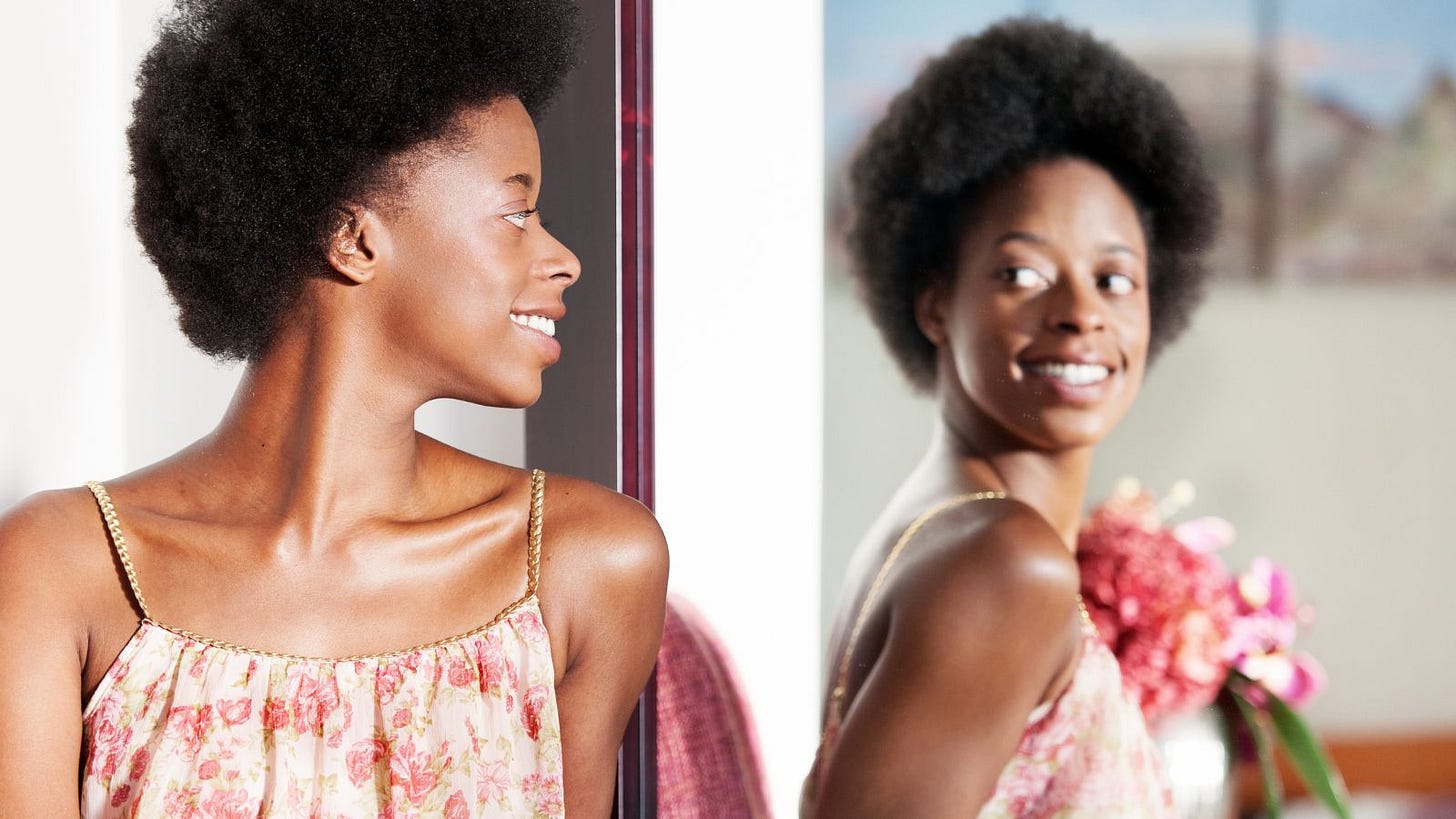The Comparison Trap
"The grass is greener" might be distracting you from building the life you want.
Comparing ourselves to our neighbours is part of basic human nature; probably that sense of competition gave us the spur to move up from mud huts.
Comparison culture starts when we are very small. My earliest memory is watching my younger sister play with my building bricks and hearing my parents praise her cleverness.
I naturally thought they were saying I was stupid. It is not just sibling rivalry, some daughters compare themselves to their mothers and worry that they will never be as pretty; sons feel they never be as strong as their father. At school, teachers often compare our ability and behaviour to other kids in the class.
Some studies show that as high as ten percent of our daily thoughts are focused on comparisons. After all, how else do we understand our successes in work and life if we don’t compare ourselves to our peers?
At the same time, there is a sense in the culture that this has turned sour in the age of social media, with envy and a kind of obsession replacing a more straightforward sense of competition with our neighbours.
Many of us while away hours “relaxing” on Instagram, admiring friends’ glamorous homes, tasteful furniture, blissful holidays and high-achieving children.
It can feel very much like no-one else has teens who sulk through expensive family trips, or sinks full of dishes we’re hoping someone else will tackle.
Healthy vs empty comparisons
So, what’s the difference between healthy comparisons (which motivate us to get fitter or better define what we want) and empty comparisons (which leave us feeling riven with anxiety and confusion)?
The answer - a clear goal. Without one, you can easily be knocked off course. For example, if your ambition is to bring up happy and well-balanced children, why worry about that friend of a friend on Facebook whose daughter won the Maths Olympiad?
Unfortunately we are often too busy coping day-to-day and forget our true priorities. So take time out to decide what you really, really want out of life; when you’ve done this the right role models will become obvious.
Don’t compare yourself to people you only know secondhand, or to celebrities. Comparisons inside your peer group are safer. You know enough about friends you grew up and work colleagues to spot the gap between the truth and keeping up appearances. With celebrities and social media influencers we can only guess the input of nannies, personal trainers, fashion consultants, makeup artists and digital tricksters.
The very best person to compare yourself to, though, is yourself. I used to feel depressed about not making any progress in recovering from the death of my partner. It felt like I’d never find love again. Reading my diaries from the time of his death really helped - it became clear that I had actually made huge strides.
So look back over your own life and remember how far you have progressed at work, or how much more creative you are today than five years ago. By judging your own progress, rather than everybody else’s, you will be able to celebrate your achievements. It is far healthier than worrying about your failings.
A ten point plan to become happy with your lot
Accept that it is natural to compare yourself. We all want to belong and not be too different. However material success and conspicuous consumption do not equal self-worth; and neither do beauty and happiness automatically go together.
Could your negative comparisons be an early warning system that something is wrong? Are you stuck in a rut, in an unfulfilling job, bored in the comfort zone or is your relationship emotionally barren? Sometimes fundamental problems are too painful to face, so we look the other way. However unhappiness untreated just pops its ugly head up somewhere else.
Test your assumptions. We often take what we see in others at face value without checking them for truth or accuracy. Is her son really that talented? Is her marriage really so blissful and perfect behind closed doors?
Concentrate on what you like about yourself. Find the toe, eyelash or fingernail that you admire about your own appearance and you will gradually learn to appreciate other things. You are what you believe you are. So say positive things and increase your self-respect and self-esteem.
Understand your self image and accentuate the positive. Write down twenty words that describe yourself. Read them back and tick every positive one. Turn these into personal mantras to undo some of the harm of negative comparisons. For example: ‘She might be slimmer than me but I can run 5km and I’m fit and healthy’
Find one clear goal. Sometimes to be happy with ourselves we need to make changes, but choose one area at a time. There is a lot of power in concentrating one project; one goal; one opportunity.
Stop comparing in order to make excuses. Sometimes it is easier to remain stuck and use other people’s supposed advantages to explain why they have got on and you haven’t. Focusing on unfairness lets precious time and energy slip away, it also hides your own individual strengths.
Change the way you look at other people. Instead of being overwhelmed by their beauty, clothes or talent, identify winning strategies to copy. Be specific. What can you learn from the way your colleague dresses, handles work projects or styles their hair?
Be realistic. Are you measuring yourself against the right people? If you are doing very different types of job, for instance, it would be like comparing apples and oranges.
Lower your expectations. It’s the punch line for the old joke: how do you feel good about yourself? However there is a lot of truth hidden there. Comparing yourself to people less blessed can boosts your confidence.It might be wrong to gloat over other people’s failings, but as long as you don’t stop them in the street there’s nothing wrong in occasionally indulging.
In other news, many of you will enjoy my podcast conversation with Connie Zweig PhD about Understanding Your Shadow. Shadow is a Jungian term meaning the unconscious parts of ourselves that we try to suppress or deny. Acknowledging and understanding shadow can be a powerful path to healing and authenticity.
As always, if it feels like the right time to start marital therapy, send an email to Tricia (tricia@andrewgmarshall.com) for a virtual or in-person appointment with one of my team of therapists in London, or with me here in Berlin.
With love,
Andrew





